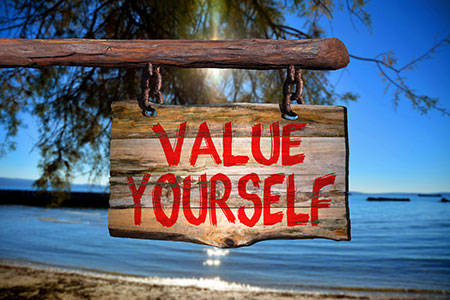Achieving Financial Independence

By Dale Gillham and Janine Cox
Many people have asked me to show them how they can become financially independent. In most cases they expect that I will give them the “holy grail” of investing, the one thing that will make them millions. Instead, I ask them a simple question: “Do you have a budget? You know that great wealth-creation vehicle that many suggest you should have to support you in getting out of debt, as well as providing a roadmap for you and your family to achieve financial independence.
According to a research report by UBank, only 1 in 5 Australians say they have full control of their finances, while a Gallup Poll in the US found that only 1 in 3 Americans prepared a detailed household budget. Why is this?
If you are like most people, you probably think a budget will restrict your spending, hamper your lifestyle and generally make you miserable. However, none of this is true; a budget is simply a financial plan that will help you to succeed and make a massive difference in your life.
What is a budget?

A budget lists your income and expenses, and lays the foundation as to how you either invest or spend your money.
Unfortunately, many see it as an angst-ridden exercise, and as a consequence they fail to put aside the necessary time to create one, preferring instead to do what is urgent rather than what is really important.
The thing is, without a budget, how do you know how much you are actually spending or, more importantly for your financial future, how much you can save?
Sadly, it is usually not until people receive their group certificate at the end of the financial year that you hear the outcry: “I got paid that much, what did I do with it all?” Only when spending habits are quantified do we know how much we can save and I have never met anyone that could not save at least 10 per cent of their income after completing a budget. Most people could save 20 to 30 per cent of their income and still maintain a good lifestyle.
Once you begin to budget, you realise just how much money is wasted in uncontrolled spending. Budgeting is like your roadmap to financial independence – it provides with you with a plan of attack that allows you to allocate your income appropriately so you stop losing.
There is an old saying that you can’t buy new clothes until you clean out your wardrobe; you need to create space in your life so you can get more of what you want. A budget allows you create this space (cash flow) so that you have more freedom, more security and more wealth. Quite simply, it provides you with the flexibility necessary to plan for the future, and more importantly, take control of your life.
5 reasons why you may not be achieving your financial goals
Before we move on to how you can create a budget, let’s consider some of the reasons that may be holding you back from achieving financial independence.
1. Pay yourself first
The number one rule in budgeting is pay yourself first, which means you need to put aside money to invest for your future. Paying yourself first is the real trick to getting rich slowly because, after all, who are you really working for?
If you are unable to do this yourself, ask your employer to pay 10 per cent of your salary into a high interest savings account until you decide which investments you want to invest the money in.
2. Allocate money to pay the bills
It can be difficult juggling debt, bills and repayments but if you set up a billing system, you won’t become overwhelmed. Keep your bills together and order them according to the due date. Review them regularly and if you run into challenges, see if you can extend the payment date without penalty.
3. Don’t try to keep up with the Jones’s
We all like to enjoy life, but trying to keep up with the Jones’s can put a significant damper on our pay cheque. Rather than eating out regularly, why not have a round robin with your friends to eat in and make a night of it once a week.
When you do go out, organise to go for a coffee and a walk in the park, rather than just sitting down to feast on a meal. You’ll not only get the benefit of exercising but you will feel you have treated yourself while keeping your spending down.
4. Curb your spending habits
We all like to enjoy the finer things in life, but sometimes we spend well outside our financial means. We also don’t realise, until it’s too late, just how much those small amounts we enjoy spending on ourselves can easily add up.
With department stores and online outlets offering special deals 24/7, it can be hard to sort out the bargains from the blowouts, so it’s worth doing your research to determine if you are actually saving in the long run.
Some people tend to seek out bargains, knowing they don't really need what they're buying, so think about what else you could be doing with the money, and what you might have to forego if you buy an item you really don’t need. Before you purchase the item ask yourself: do you need it or do you just want it!
While it is nice to spoil ourselves, I encourage you to allocate a percentage of your salary (as part of your budget) to a separate bank account for these transactions and to develop the discipline to never spend more than you have allocated to this account.
5. Value yourself
If you believe your salary doesn't reflect your abilities, arrange a time to speak to your boss about a pay rise and make sure you research and prepare reasons to justify the cost to your employer. You may also want to call some associations related to your field to know whether the pay rise you're asking for is realistic. If you don’t ask, you won’t get it!

Now let’s consider how you would go about creating a budget.
How do you create a budget?
The first step is to write down where everyone in the household draws an income from. This may include, for example, your wages/salary, dividends from shares, distributions from other investments, bank interest from savings and income from rental properties.
Now make a list of all of your foreseeable expenses for the next 12 months and then break them up into three groups: essential, necessary and lifestyle. The best way to do this is to review your household expenses for the previous 12 months.
Your essential items may include:
- Rent or home loan repayments,
- Your utility bills such as rates, gas, electricity and water,
- The cost of food and groceries, and
- The cost of sending your kids to school.
Your necessary items may include:
- Registration, insurance, petrol and maintenance on the car,
- Home insurance,
- Health insurance,
- Internet and mobile phone costs,
- Money to reduce the debt on your credit cards or student loan,
- Maintenance on the home you live in,
- Clothing,
- Medical costs,
- Transportation such as the bus or train, and
- Personal items.
Your lifestyle items may include:
- Entertainment and social activities,
- Sporting activities,
- Holidays,
- Gifts for birthdays, Christmas, etc.
- Eating out
- Subscriptions, such as Foxtel or Netflix
It is also important to include an allowance for an unexpected emergency, which is referred to as a contingency fund. That way you won’t need to take money from your planned savings if something unexpected were to arise.
Once you have documented your income and expenses, you now need to determine how much you can save. The minimum should be at least 10 percent of your total income. Let’s say your total combined household income is $80,000, you want to be able to save at least $8,000 per annum. Remember, by paying yourself first, you are investing in your financial future.
If you find you are unable to save at least 10 per cent of your income, you will need to look at reducing your spending by reviewing your lifestyle and then your necessary expenses. You may also find that you can reduce your necessary expenses by shopping around for cheaper items. If you still find you cannot save 10 percent, do not stress, the point is to start saving at least some of your income for the future.
Documenting your budget
You now need to document your income and expenses into a workable format that you can refer to on an ongoing basis. If you are a wiz at spreadsheets you can spend time creating your budget planner in Excel. To do this, you would create a table with the categories down the left of the spreadsheet and the weeks and/or months of the year along the top. You will need at least five major categories, which include: income, savings, essential expenses, necessary expenses and lifestyle expenses.
Alternatively, you can access a free budget planner, such as the one found on the Governments Money Website or you might like to consider something like the ‘5 Minute Manager’, both of which come with instructions. There are also plenty of Apps that you can use to support you with your budgeting.
Once you start working within your budget, I recommend reviewing it every three months within the first 12 months to see where you may need to tweak your expenditure so that you stay on track. You may even find that you are able to save more than you first anticipated.
Investing in the share market
Once you start saving, you have the opportunity to significantly accelerate your wealth by investing in shares, for example. Do you know that if you invest in the top 10 shares on the Australian market over any ten-year period, your return including dividends, and before tax, would be around 10 percent per annum? Compared to bank interest, investing in the share market has the potential to achieve your financial goals much sooner than you otherwise would. If investing in the share market is something that interests you, then I encourage you to read learn how to trade stocks and how to invest in shares with little money.
Further, if you include the effects of allowing your returns to compound and let your nest egg grow, you may be surprised at how quickly you can build wealth. Indeed, Albert Einstein referred to compounding as the most powerful force in the universe for good reason, because anyone can take advantage of this strategy. I encourage you to read the laws of wealth creation to understand this concept in more detail.
Remember, budgeting is like your roadmap to financial independence - it provides you with a plan of attack that allows you to create your preferred reality. The bottom line is a budget will allow you to allocate your income appropriately, so that you stop leaking money and work towards achieving financial independence. Once you experience the power of what a budget can do, you will never want to give up control over your finances again.
Others who read this article also enjoyed reading:
You may also want to purchase my latest book Accelerate Your Wealth, It's Your Money, Your Choice, which is packed with strategies as to how to achieve financial independence.
And to learn how you can start investing in the share market with confidence, view our trading courses. You can also check our what our clients have to say by viewing their reviews, success stories and testimonials.






